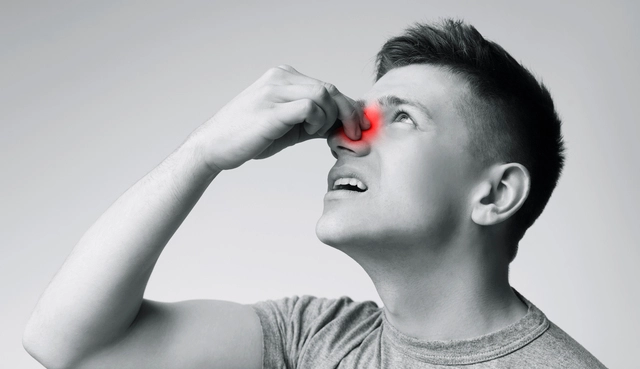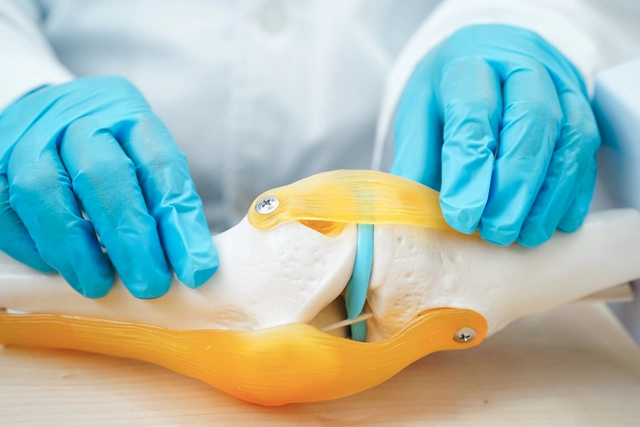Have you ever had a blocked nose and found your ears aching at the same time? Many people wonder, can sinus cause ear pain? The answer is yes. Your sinuses, ears, and throat are closely connected, which is why problems in one area often affect the others.
In this blog, we’ll explain how sinus issues lead to ear pain, the common symptoms to look out for, and the best treatment options.
How the Sinuses and Ears Are Connected
The human body has a network of air-filled cavities called sinuses that sit around the nose, forehead, and cheeks. The Eustachian tube is a narrow passage that connects the middle ear to the back of the nose and throat. Its job is to equalise pressure and drain fluids.
When sinuses become blocked due to infection, allergies, or inflammation, the Eustachian tube can also get affected. This creates a pressure imbalance in the ear, leading to pain, discomfort, and sometimes muffled hearing.
How Sinus Problems Cause Ear Pain
1. Pressure Build-Up
Blocked sinuses cause pressure changes that extend to the ears. This pressure may feel like fullness, popping, or sharp ear pain.
2. Eustachian Tube Dysfunction
When mucus blocks the Eustachian tube, fluid may build up in the middle ear. This creates discomfort and can even cause temporary hearing loss.
3. Referred Pain
The nerves in your face, sinuses, and ears are interconnected. Pain signals from sinus inflammation can be “referred” to the ear, making you feel as though your ear is the source of the problem.
Symptoms of Sinus-Related Ear Pain
If you’re asking, can sinus cause ear pain, here are the tell-tale signs:
- Ear fullness or pressure sensation
- Mild to moderate earache
- Muffled or reduced hearing
- Ringing in the ear (tinnitus)
- Headache or facial pressure
- Postnasal drip
- Nasal congestion or runny nose
These symptoms usually occur together during sinus infections, colds, or allergy flare-ups.
Sinus Conditions That May Lead to Ear Pain
- Acute Sinusitis: Short-term infection leading to congestion and pain.
- Chronic Sinusitis: Long-term inflammation causing frequent ear problems.
- Allergies: Trigger swelling in nasal passages, affecting ear pressure.
- Nasal Polyps: Growths that block drainage pathways.
- Common Cold or Flu: Viral infections that inflame both sinuses and ears.
When to See a Doctor
Although sinus-related ear pain often resolves with treatment of the underlying sinus problem, you should seek medical help if:
- Ear pain is severe or persistent
- You notice ear discharge
- There’s sudden hearing loss
- Fever accompanies sinus or ear pain
- Symptoms last longer than 10–14 days
Treatment Options for Sinus-Related Ear Pain
Home Remedies
- Steam inhalation: Loosens mucus and relieves pressure.
- Warm compress: Applied to the sinuses or ears to ease pain.
- Hydration: Drinking plenty of water thins mucus.
- Saline nasal spray: Keeps nasal passages clear.
Medical Treatments
- Decongestants: Reduce nasal and sinus swelling.
- Antihistamines: Useful if allergies are the trigger.
- Antibiotics: Prescribed only if a bacterial infection is confirmed.
- Steroid nasal sprays: Control chronic inflammation.
Advanced Options
In severe or chronic cases, an ENT specialist may recommend:
- Myringotomy: Tiny incision in the eardrum to drain fluid.
- Sinus surgery: To improve drainage in chronic sinusitis.
Conclusion
So, can sinus cause ear pain? Absolutely. Because of the close connection between the sinuses and ears, congestion and inflammation often lead to ear pressure, discomfort, or pain. While home remedies can offer relief, persistent or severe symptoms should never be ignored. With timely medical care and preventive steps, you can keep both your sinuses and ears healthy.




